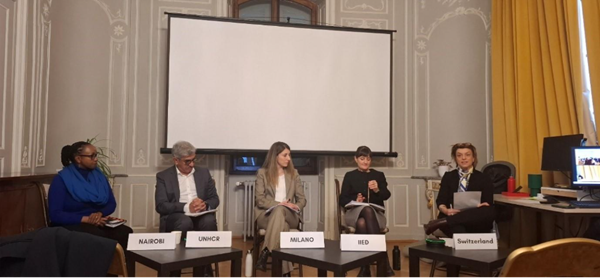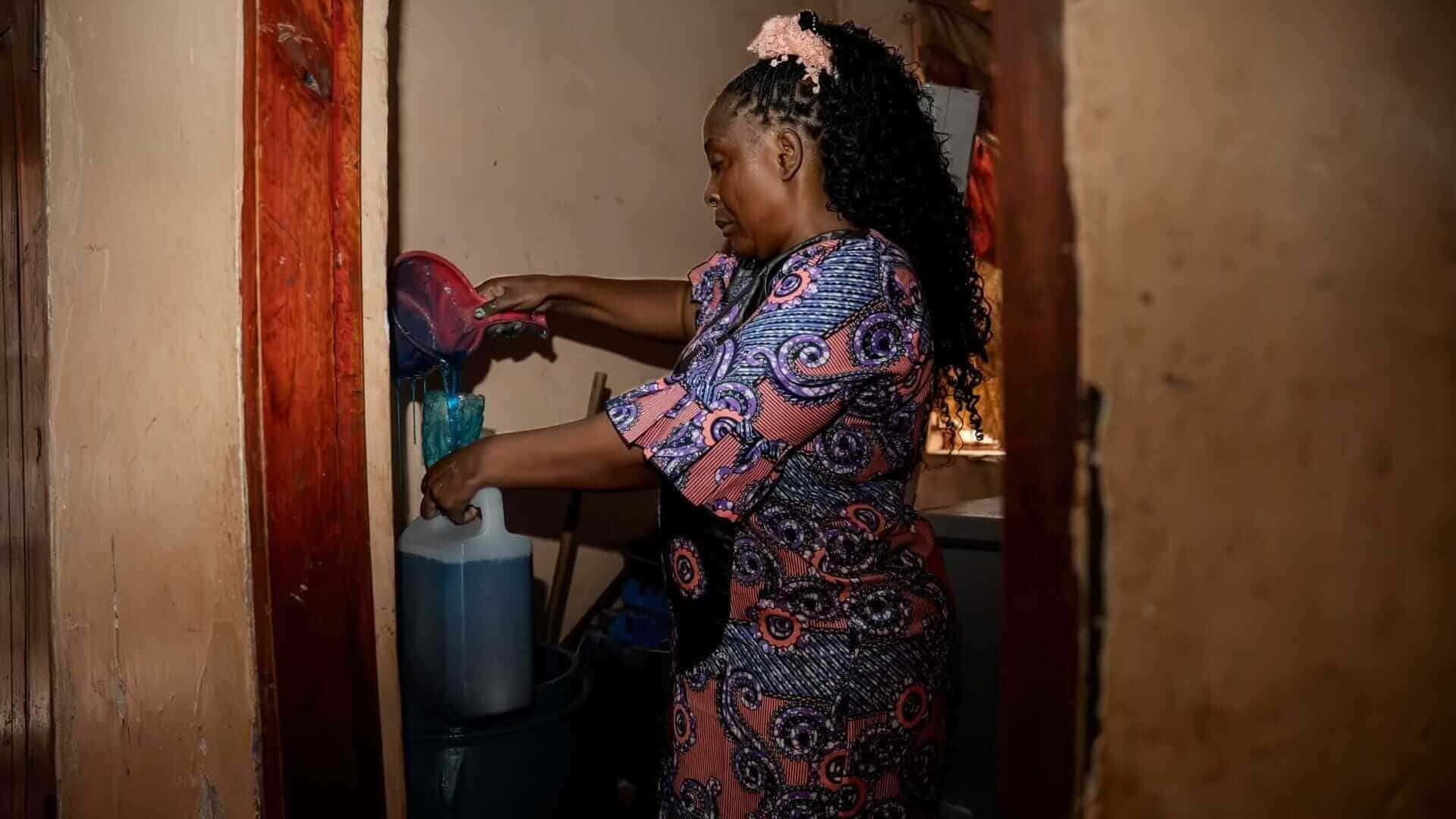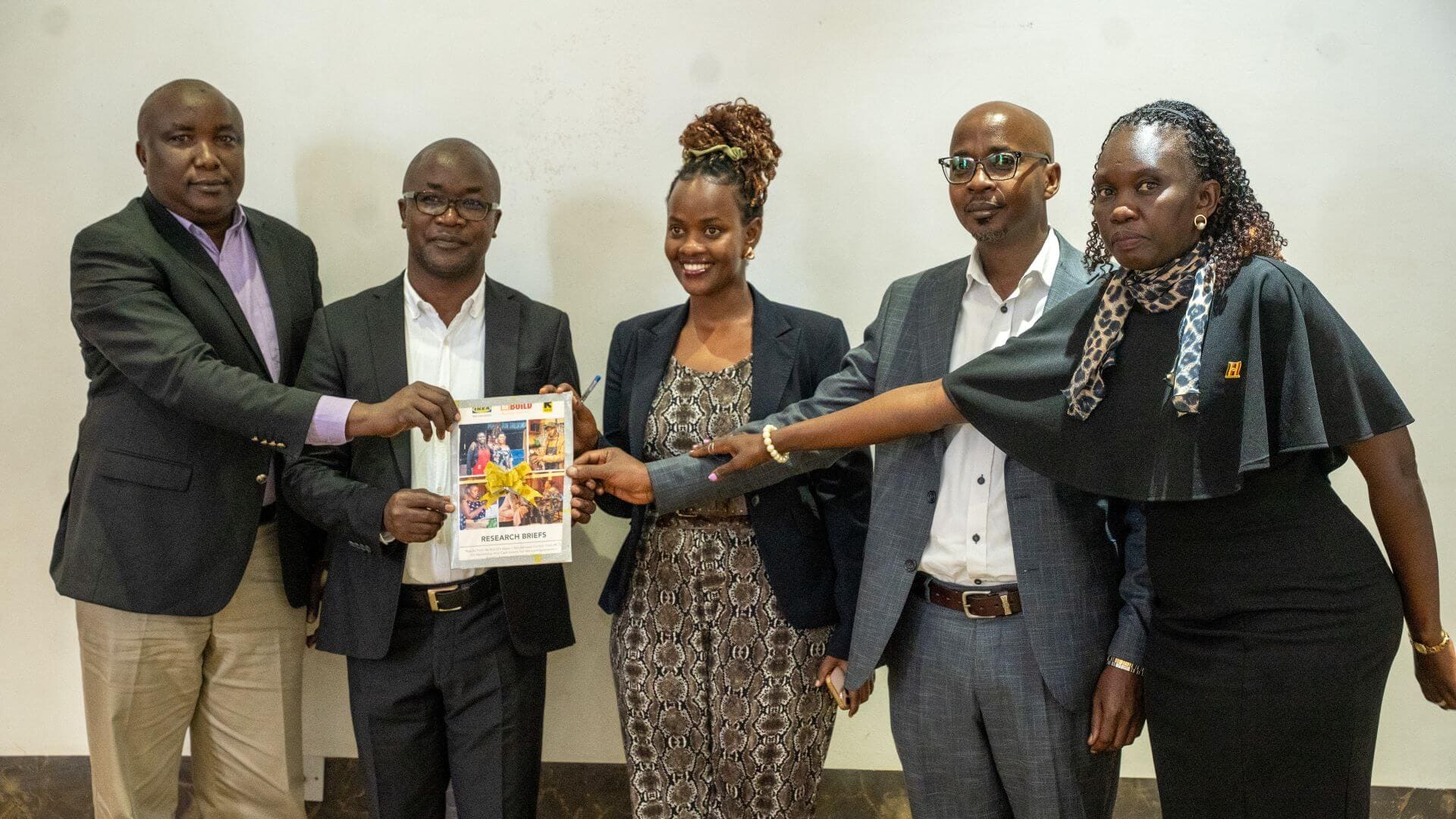From Evidence to Policy: Refugee Self-reliance and Economic Inclusion in East Africa
From Evidence to Policy: Refugee Self-reliance and Economic Inclusion in East Africa
From Evidence to Policy: Refugee Self-reliance and Economic Inclusion in East Africa
By Irene Shiundu, Anne Marie Schryer and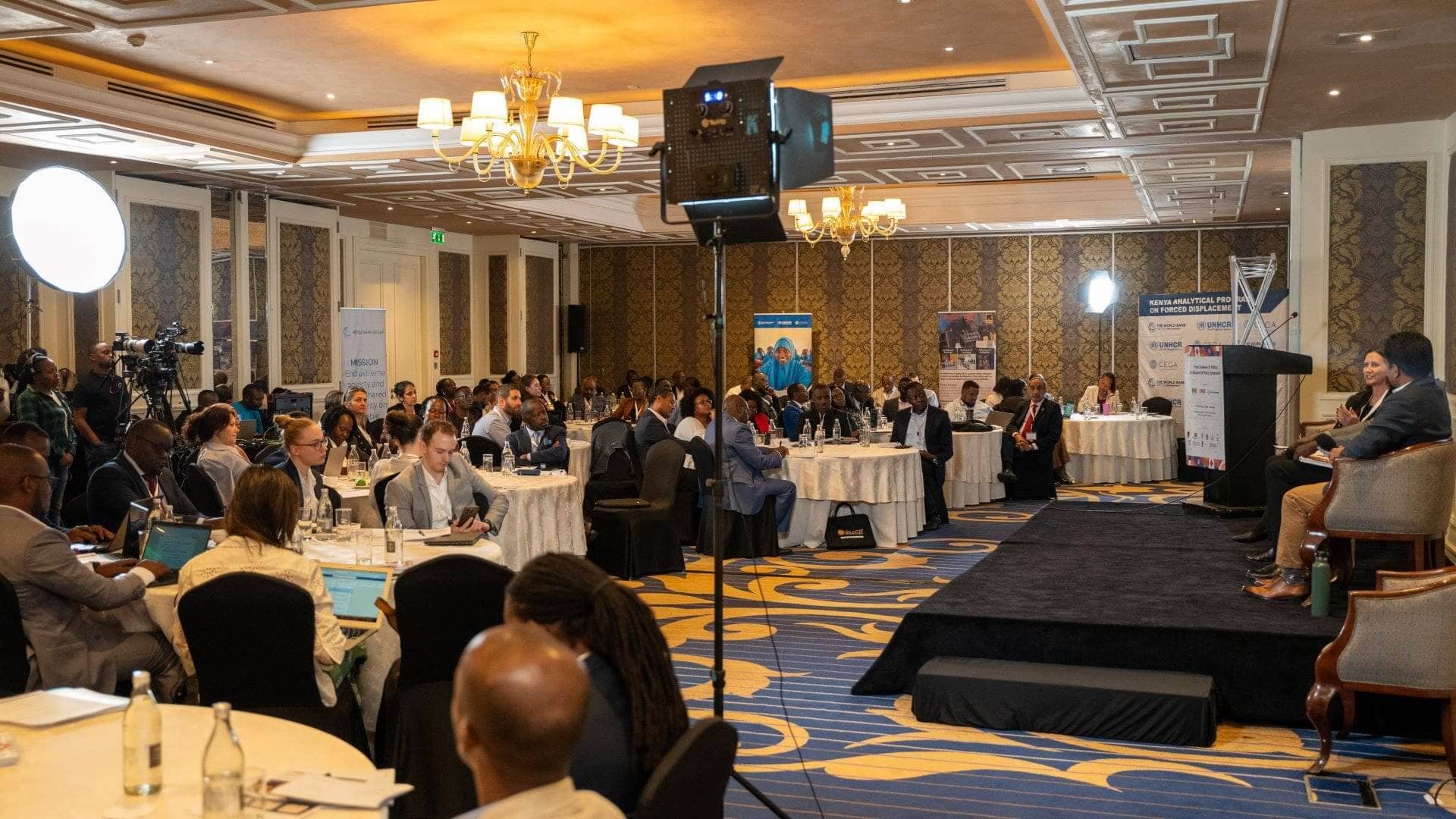
In October 2024, the IRC’s Refugees in East Africa: Boosting Urban Innovations for Livelihoods Development (Re:BUiLD) team convened a diverse group of researchers, policymakers, and field experts to examine and advance refugee self-reliance and economic inclusion in East Africa. The two-day event was the result of a collaborative effort between the Re:BUiLD program, the IKEA Foundation, and the World Bank, in collaboration with other partners.
The Symposium sought to challenge traditional paradigms, foster innovative approaches to confront the complex issues surrounding forced displacement in the region and offered a networking opportunity for practitioners, refugees, donors, academia, private sector, policy makers and researchers from Kenya, Uganda and Ethiopia. As she opened the event, Priscilla Dembetembe, Program Director for Re:BUiLD, set the tone by challenging the participants with the following question: “As development partners and researchers, we produce a wealth of research, but does it ultimately reach the desks of policymakers?”. Her intervention emphasized the urgent need for a paradigm shift in how we approach refugee research, policymaking and knowledge production in the region.
The symposium focused on four key themes: access to finance and microenterprises; access to jobs and skills development; access to justice and legal identity; and, access to social protection. Presentations of research papers were done to set the tone for evidence-driven dialogue combined with insights from those with lived experiences in forced displacement, to inform policy making.
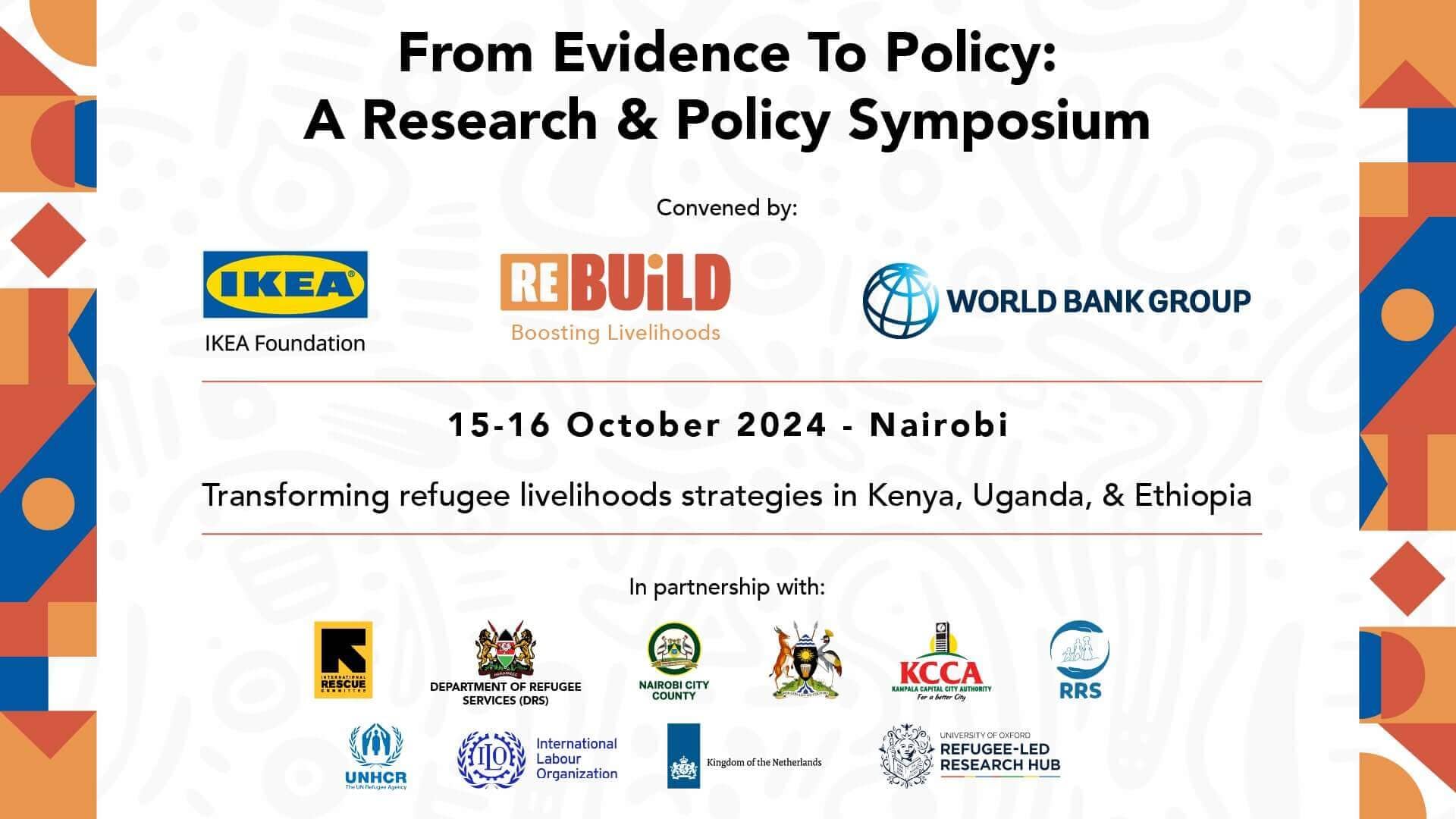
Key highlights, takeaways, and discussions
Key takeaway 1: The urgent need for policies that go beyond short-term humanitarian aid. Ethiopia, Kenya and Uganda hosted close to 3.3 million refugees by the end of 2023, with political tension, conflict and natural disasters at the root of most of the region’s large refugee and displaced populations. The efforts to transform the lives of refugees and host fostering self-reliance are more vital than ever.
Key takeaway 2: A regional approach to refugee policy in East Africa is essential. Recognizing the three countries collectively host a significant portion of Africa’s displaced populations, participants advocated for a common refugee policy framework across these countries to ensure cohesive support systems and equitable access to services. Representatives called for biannual or triennial reviews of policy implementation, monitor progress, address challenges, and adapt strategies to emerging needs.
Key takeaway 3: An inclusive, evidence-based policies to promote refugee self-reliance and integration. While progress has been made, particularly in the areas of social protection and financial inclusion, the ongoing challenges in funding, documentation, and policy implementation remain. The Symposium emphasized a strong cross-sector collaboration and targeted support, in which refugees can transition from recipients of aid to active contributors in their host communities, benefiting not only refugees but also national economies and social cohesion across East Africa.
Key takeaway 4: Deliberate Integration of refugees into national development plans. Programs across Ethiopia, Kenya and Uganda exemplify a shift in regional policy from seeing refugees as a temporary humanitarian challenge to viewing them as meaningful contributors to national and local economies. However, gaps remain such as regulatory barriers, and the need for recognized refugee documentation for business licensing and market access.
Key takeaway 5: Social protection and legal identified as critical elements for refugee resilience and integration. Social protection programs boost livelihoods by enabling refugees to invest in assets like housing and small businesses. Existing frameworks that support refugees were recognized, but participants noted that predictable and reliable funding is crucial to maintaining these programs. Research presented during the symposium highlighted the connection between economic and psychosocial wellbeing, with cash transfers alleviating financial stress among refugees. Despite these advances, challenges persist, thus underscoring the need for stronger regulatory frameworks and coordinated institutional support to promote sustainable integration.
Key takeaway 6: A clarion call to identify practical pathways for economic inclusion and access to finance for refugees. While financial inclusion is essential for refugee self-reliance and to break the cycle of aid dependency, the same remains challenging due to documentation requirements, gender disparities et al Additionally, due to distinct challenge faced by women, they underscored the need for tailored financial products and cooperative opportunities that address gender disparities.
The full Symposium report is available here.
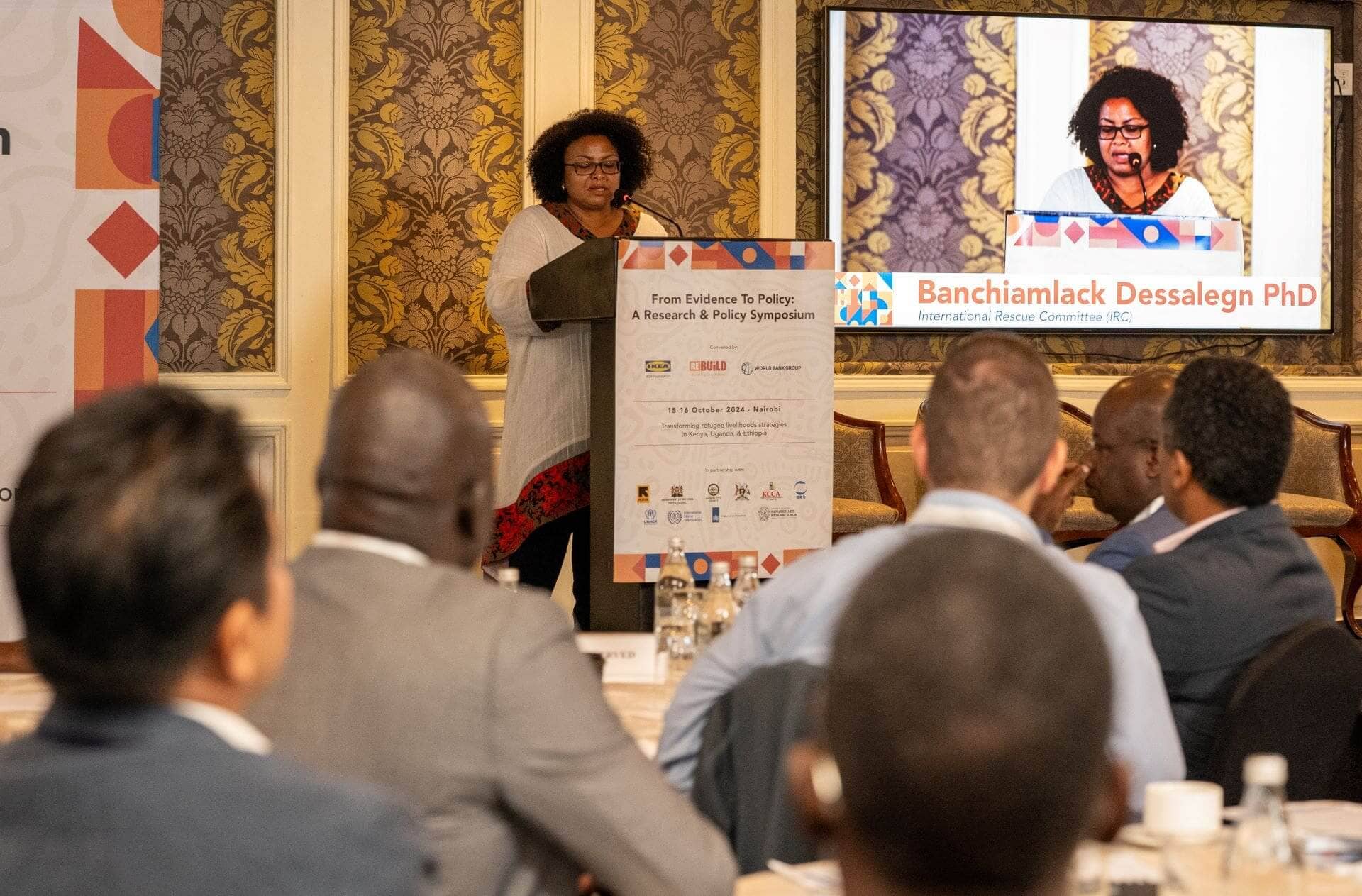
Keynote speaker Banchiamlack Dessalegn, the IRC’s Regional Vice President for East Africa, calling for evidence-based interaction and commitment among policymakers to formulate policies that enhance the lives and livelihoods of displaced populations and host communities.
Conclusion
The Research and Policy Symposium will be remembered as the rubicon of forced displacement in the region. Participants concurred with the recommendations for enhancing refugee inclusion and highlighted inter alia stronger collaboration across governments, NGOs, and private sector partners. Advocating for policies that would allow refugees to access formal financial services, secure work permits, and transition from informal to formal employment. Emphasis on the importance of demographic data on refugee populations to facilitate better planning for services and resources by local government officials built on the rich discussions held during the 2-day event. As Re:BUiLD continues to reflect on the outcomes of this event, we have undoubtedly influenced the shape of discourse about the future of refugee research and policy in Kenya. We aim to develop a roadmap for establishing a sustainable research-policy dialogue framework and surmount regional bottlenecks.
Access full recordings of the sessions here and access the post-event report here. The report includes a summary of the evidence, policy recommendations and conclusions
